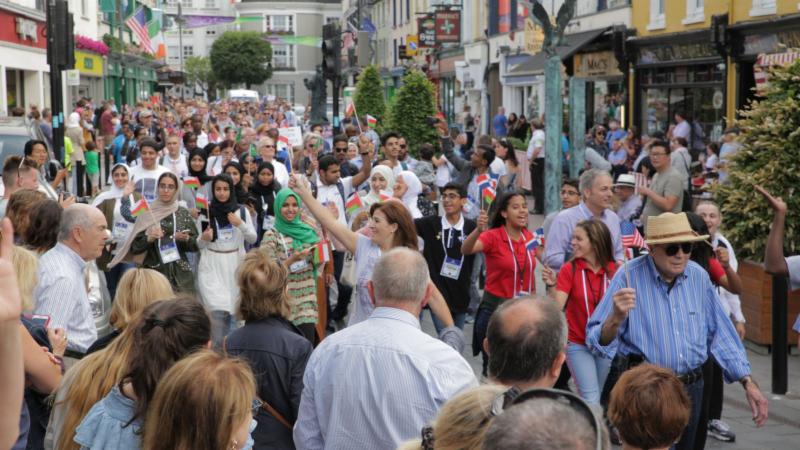July
July 2018 GLOBE News Brief
2018 GLE Has Come to a Close – A Success of Community and Global Proportions!

The 2018 GLOBE Learning Expedition (GLE), held this week in Killarney, Ireland, came to a close on Friday, 06 July. Almost 400 participants from more than 35 countries launched the event with a jubilant parade through the town of Killarney. Everyone maintained high spirits despite record-breaking high temperatures and lack of rain; Killarney is now officially experiencing drought conditions!
Participants engaged in an amazing weeklong examination of various field sites in Killarney National Park; student presentations; a storytelling workshop; cultural presentations; special interest and professional development sessions; and addresses by GLOBE Director Dr. Tony Murphy, sponsors, scientists, and extraordinary student keynote speakers from the regions. Everyone agreed that the beautiful setting; the extraordinarily helpful Killarney Park administration and rangers; Killarney town police; An Taisce (GLOBE Ireland's organization); hotel event managers; and the collegial GLOBE students and community members in attendance made for a memorable event that is likely to live on in the minds and hearts of participants for years to come.
The GLOBE Implementation Office (GIO) would like to thank everyone for their participation and contributions – helping to make this scientific and educational event a success of community and global proportions.
You can find photos shared by the participants themselves on the GLE photo sharing site
(www.globe.gov/gle2018).
Note to participants: photos can be added to this site as you return home and have time to upload your photos. New photos are likely to be added daily.






